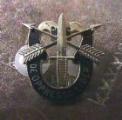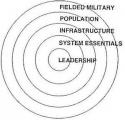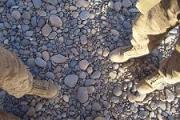Oil is a global market. People who have it need to sell it, people who need it need to buy it. All we every really wrestle over is who gets what cut of the profits. What government, what corporations, etc.
Corporations love the stability that comes with dictators, so we tend to back keeping dictators in power where corporate interests are high. I suspect since that has worked so well, we have applied the same stability principle to other areas where different types of interests are at stake, like access to key LOCs such as the Red Sea and Suez.
The real issue at play in GWOT is not an effort to expand extreme versions of Islam onto the unwilling; but rather to dislodge extreme versions of capitalism that have served to disrupt local processes of governmental legitimacy. Both will run hand in hand for a while, but once the causation of governance is addressed, the motivation of extreme Islam will quickly subside as well. If history is any judge, anyways.
(The poor fellas at Exxon didn't even send me a Christmas card this year.)












Bookmarks